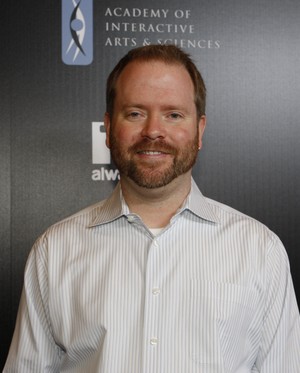
Tim Campbell is a member of the Academy of Interactive Arts and Sciences where he serves as one of its board directors. He works for Vigil Games.
Q: What’s the one problem of game development you wish you could instantly solve?
A: How to get quality games made on time and on budget without anyone having to work any overtime.
Q: Tell us one of your recent professional insights.
A: Our industry, as a whole, does not currently operate in a sustainable fashion for the long term. Fundamentals have to change.
Q: When you look at the future is there one great big trend that affects everyone?
A: Consumers are extremely well informed about their gaming options and you cannot fool them. Everything that you put into your game matters, so make it all count.
Q: What's your favorite part of game development?
A: Working with a talented group of creative people on a daily basis.
Q: What game are you most jealous of?
A: World of Warcraft. It changed the way we think of gaming and took what was previously a niche genre and grew the audience because of both its quality and accessibility. It is a game that has something for everyone at a high level of quality all in one package. It can be played solo, cooperatively, competitively and socially all in the same experience. For people like me who like a little bit of everything, it allows me to have a slightly different slice of gameplay every time I sit down to play. Add in the stickiness of the character progression and satisfying reward systems and you have a recipe for true addiction.
Q: Are games important?
A: Games are as important as any other form of mass entertainment. People need fun in their lives.
Q: If you weren't in game development, what would you be doing today?
A: I have no idea. I was parking cars before I joined the industry.
Q: Do you think it’s important for developers to continue playing games?
A: It’s essential that developers continue to play games to keep pace with the rapid evolution of game making.
Q: What's the biggest challenge you see facing the industry?
A: How to transition from a used games driven retail model to a direct, long-term, service-oriented relationship with our consumer.
Q: On a practical basis, what’s the one thing you’re going to tackle next?
A: Help make our company operate better through stronger management and communication practices.